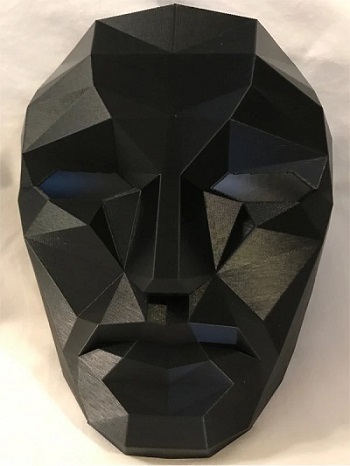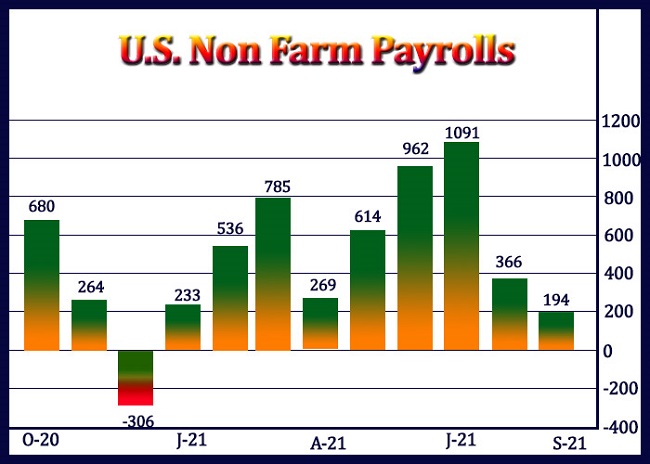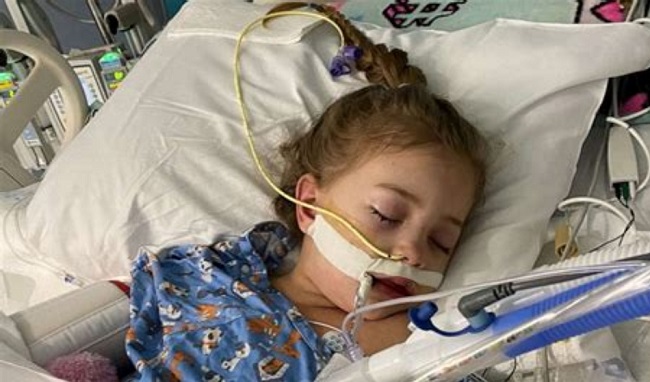Protect The Kiddies You Know And Love

Halloween marks the start of party season. None of our kids are vaccinated and they are vulnerable. You can’t isolate them. They’ve got to go to school. Let me show you how to protect them.

Halloween marks the start of party season. None of our kids are vaccinated and they are vulnerable. You can’t isolate them. They’ve got to go to school. Let me show you how to protect them.
When you think of police officers dying in the line of duty, you probably think of them chasing down a criminal and being shot or getting run over by a getaway car. So far this year, 356 law-enforcement officers across the country have died in what have been classified as line-of-duty deaths. But just 49 of them died by gunfire and 16 by vehicles. These are relatively small numbers compared to the 228 officers who died from COVID-19, according to the Officer Down Memorial Page, an online tribute to officers compiled by a nonprofit dedicated to giving the public the chance to “remember the fallen and honor their sacrifices.” But this year, COVID-19 has turned that mission on its head. For is it really a “sacrifice” to die because you turned down a life-saving vaccination against an airborne-spread illness? The memorial page notes that the coronavirus is the No. 1 killer of law-enforcement officers this year. “Getting vaccinated is just as important as wearing your vest and your seat belt,” it says. “Don’t wait any longer, please consult your doctor to see if vaccination is right for you.” And yet, sadly, officers have been hesitant, and it has led to their preventable, premature deaths – and no telling how many other deaths of those they encountered on the job. Continue reading “Hesitancy to get vaccinated from COVID-19 kills more police officers than gunfire”
Oct 12 (Reuters) – The European Union may consider signing a supply deal with U.S. drugmaker Merck for its experimental COVID-19 pill, but only after the company starts the process of seeking approval for the drug in the bloc, a senior EU official said on Tuesday. The oral antiviral treatment molnupiravir has been developed with Ridgeback Biotherapeutics. On Monday Merck applied for emergency use authorisation in the United States, which has already secured 1.7 million courses of molnupiravir at a price of $700 per course. The EU would consider a joint procurement of molnupiravir, “if Merck engages with EMA”, the EU official told Reuters, referring to the European Medicines Agency. Throughout the pandemic, the EU has signed advance purchase deals for experimental vaccines and drugs against the new virus before companies applied to EMA, but the official said that approach had now changed because the 27-nation bloc has entered a new phase in the health emergency. Continue reading “EU may consider deal on Merck’s COVID pill after approval procedure begins”
The idea is that when used widely and frequently, the detectors, similar to a home pregnancy test, could stop outbreaks before they begin. Such countries as Germany and the U.K. have invested heavily in the tests, making them available cheaply, or even free. Others, including the U.S., have stuck with a more sensitive laboratory test that often must be administered by trained personnel and can take days to return results, depending on the lab’s processing capacity. “I’ve just been banging the drum about this really simple tool that frankly, could have prevented the outbreaks of last winter,” says Mina. “It could have—especially when we had no vaccines—saved hundreds of thousands of lives.” Rapid testing may finally be having its moment. Even in countries with plenty of vaccine supply, policymakers are coming to the realization that shots alone might not be enough to stop the virus, especially its more infectious delta variant. President Joe Biden said on Sept. 9 that he would spend $2 billion on 280 million rapid tests, and his administration announced an additional $1 billion purchase this month—part of a group of measures that officials say should quadruple the number available for home use by December. It’s not enough, but it’s a start, Mina says. Mina likes to compare the rapid technology to fire engines at a burning building, while the laboratory test is emergency responders arriving to a building after it’s burned down to embers. In other words, the rapid tests are good enough to catch what they need to, picking up the people who are likely more infectious. Modeling he’s done shows that twice-weekly rapid testing is effective at stopping significant viral spread, even if only half the people do it, and some mess up the test or it simply fails.So while rapid tests may not be perfect, they can play an important role in helping businesses—and by extension, entire economies—chart a path back to normalcy. In one of the first randomized clinical trials, same-day screenings paired with N95 face mask. NN: We are at the end of the line in test kits. Maybe we will have them for the next 2 weeks. We are at the end of the line. Now is the time to stock up. Testing is your last line of defense for you and your loved ones. The antivirals you are hearing about ONLY work in the first few days of infections…. We test everyday here. At the least you should test twice a week…

Politicians are afraid of an uprising so they’re allowing massive spreader events. Smart people are in isolation.
Two real-world studies published Wednesday confirm that the immune protection offered by two doses of Pfizer’s Covid-19 vaccine drops off after two months or so, although protection against severe disease, hospitalization and death remains strong. The studies, from Israel and from Qatar and published in the New England Journal of Medicine, support arguments that even fully vaccinated people need to maintain precautions against infection. One study from Israel covered 4,800 health care workers and showed antibody levels wane rapidly after two doses of vaccine “especially among men, among persons 65 years of age or older, and among persons with immunosuppression.” Continue reading “Studies confirm waning immunity from Pfizer vaccine”
This is an interesting twist in the theraputics war. Everybody knows about Ivermectin; its been around forever and has a remarkable safety record. Unfortunately it has been denigrated at least as much as hydroxychloroqine to the point that most people don’t know what to believe. Ivermectin was originally produced by Merck, but has been off patent for a long time. Now Merck has produced a new antiviral pill, Molnupiravir, that has done quite well in initial clinical trials. Of course this is ONE clinical trial, performed by Merck. There hasn’t been much interest by Big Pharma on doing clinical trials on Ivermectin, possibly for a number of reasons, but the one that stands out is that it’s cheap and the patents have long ago expired. No Billions to be made there.
Continue reading “Ivermectin or Molnupiravir… That is the question… After you’re vaccinated hopefully 3 times”
Merck is the Big Pharma company producing an experimental antiviral pill for Covid-19 treatment is accused of selling the drug to the US at 40 times the cost of its production, found a report. Molnupiravir, manufactured by pharmaceutical company Merck, has entered into a contract with the US government to supply 1.7 million courses at a price of $700 per course.
Continue reading “Merck prices Molnupiravir at a 4000% mark up”

Continue reading “Illinois toddler fights for his life as COVID transmission rages”
PARIS, Oct 6 (Reuters) – France’s health authority (HAS) is recommending a third COVID-19 vaccine booster shot for health workers, it said in a statement on Wednesday.
https://youtu.be/JZgFTnpGmpM